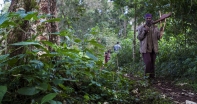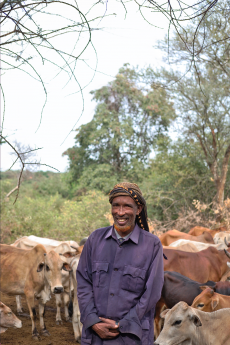How good land management can protect futures
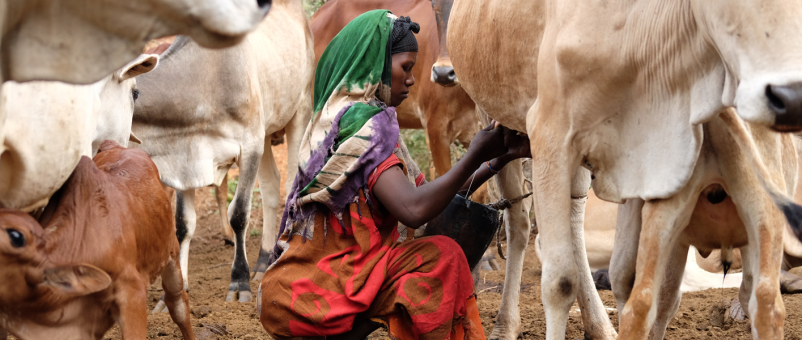 Photo: Farm Africa / Nathan Siegel
Photo: Farm Africa / Nathan Siegel
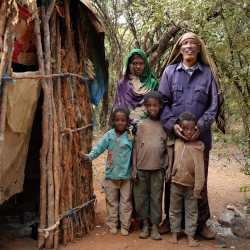 Year upon year, Mohammed and Kadiya Hassan, pastoralist farmers living in the lowlands of Ethiopia’s Bale Eco-Region, used to take their children out of school every dry season and travel to the forest highlands searching for pasture for their cattle and camels.
Year upon year, Mohammed and Kadiya Hassan, pastoralist farmers living in the lowlands of Ethiopia’s Bale Eco-Region, used to take their children out of school every dry season and travel to the forest highlands searching for pasture for their cattle and camels.
Kadiya remembers how it was for them: “It took three days of walking to get there. It was difficult for my children to do this journey, so they travelled on the back of mules and I went on foot…. sometimes our calves would die on the journey.”
But with Farm Africa’s help, the family is now taking part in a community effort to re-green the lowlands and make this difficult journey a thing of the past.
As the lead member of a consortium delivering a project preserving ecosystems in Bale (funded by the European Union and the Jersey Overseas Aid Commission), Farm Africa is helping lowland pastoralist communities establish rangeland management co-operatives, which mean that pastures are better managed and the need to seek out grass elsewhere is dramatically reduced.
Mohammed explains: “Before, nobody was concerned about good management, so anybody used resources everywhere. Now there is communal land and everybody also has their own grassland fenced off. I have four to five hectares of my own grassland. I only use it a few times a year, the rest of the time I use the communal land”
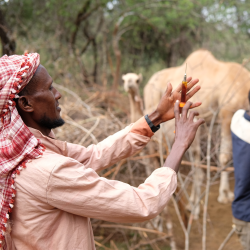 Measures such as these are giving the lowland pastures the chance to regenerate, meaning there is grass available even during the annual three-month dry season. Better pasture means huge improvements in the health of the livestock, which in turn has brought big increases in milk production as well as a doubling of the sale price of the cows.
Measures such as these are giving the lowland pastures the chance to regenerate, meaning there is grass available even during the annual three-month dry season. Better pasture means huge improvements in the health of the livestock, which in turn has brought big increases in milk production as well as a doubling of the sale price of the cows.
Farm Africa has also trained up 25 community animal health workers to give vaccinations and treat internal parasites, bringing further improvements to the health of the livestock.
Kadiya explains why these improvements are so important. “Cows are life for us. Now, we have enough pasture and we can get enough milk. The milk production has increased: we used to get 0.5 to 1.0 litres of milk from each cow every day, now we get two litres a day. The children drink the milk and we make butter from it. Before, there was not enough milk for the children. Now we can also get a good price for our cattle at market.”
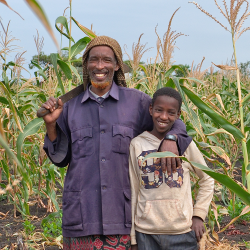 The family no longer have to leave home during the dry season in search of grass, which means they’re now also able to plant crops to help feed the family and supplement their income.
The family no longer have to leave home during the dry season in search of grass, which means they’re now also able to plant crops to help feed the family and supplement their income.
Mohammed explains further, “I now earn income from selling sesame and mung beans, and I grow maize for us to eat ourselves. I also use the maize stalks to feed our cattle. Previously, I had to sell cattle and goats just to get money to feed the family. Now, I can buy whatever I need with the money I get from selling sesame and mung beans.”
Kadiya has seen the positive effect rangeland management has had on her family. “Now, the calves have enough pasture here and we have enough milk. Since the cooperative was set up we can stay here year-round. Our children can now go to school all the time, we can cultivate our land.”
